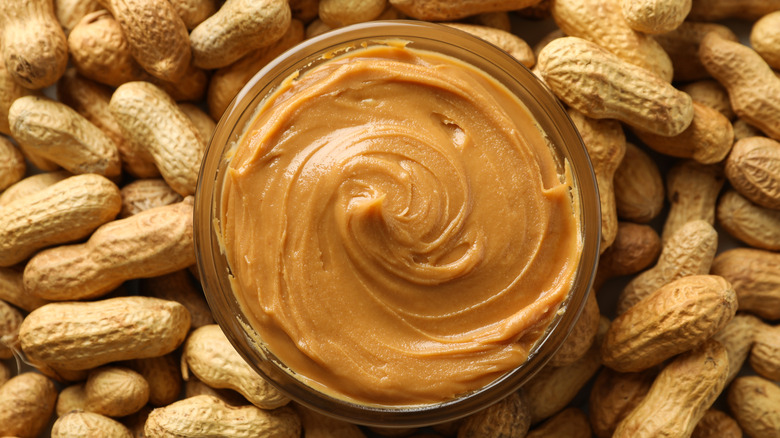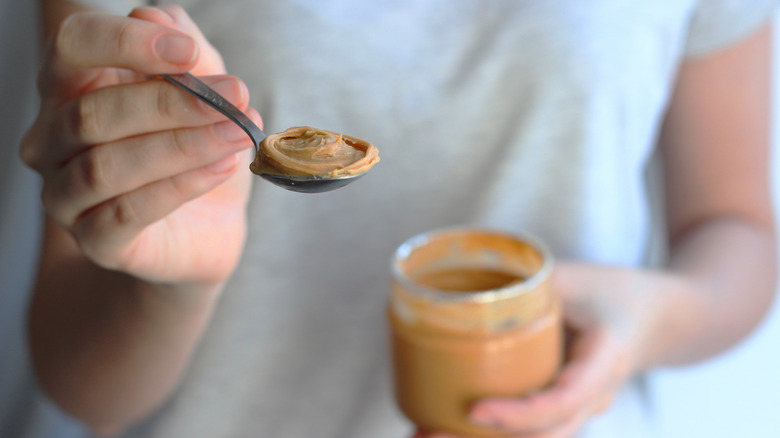
Constipation is an uncomfortable health ailment typically defined as having fewer than three bowel movements per week. While occasional constipation is common for many, frequent constipation may pose greater discomfort and challenges to healthy living, via Mayo Clinic. If chronic constipation is a part of your life, you may wonder which foods cause an increased risk.
If you’re a peanut butter lover, you may be worried that the thick, creamy spread may slow your digestion down. But peanut butter contains about 2 grams of fiber per serving, which, as a general rule, is not likely to cause constipation. In fact, foods that are high in fiber tend to promote gut motility and decrease constipation and associated symptoms, via WebMD. Some health experts even suggest peanut butter may act as a natural laxative for constipation relief, via Livestrong. However, peanut butter may not be great for everyone, and other factors may increase instances of constipation.
IBS or low water intake could be to blame

Peanut butter may cause constipation if we aren’t getting enough water. In fact, whenever we eat fiber-rich foods, it’s necessary to combine them with plenty of water in order to keep things moving through our digestive tract. Some health experts warn that fiber-rich foods can actually cause constipation if we’re not hydrating enough, via Eat This Not That.
Another factor contributing to peanut butter constipation may be IBS, and there exists a debate as to whether or not peanut butter exacerbates IBS symptoms like constipation. Generally, IBS sufferers tend to avoid FODMAPS and other fiber-rich foods. While peanut butter isn’t considered a high FODMAP food, the fiber content could pose a problem. If you suspect peanut butter may be contributing to IBS-related constipation, consider keeping a food diary to help you track symptoms, via Livestrong. Additionally, you may consider eliminating the food for a period of time and reintroducing it to see if constipation symptoms appear right after the reintroduction.
You could be sensitive to certain ingredients in peanut butter

It’s also possible for constipation to be triggered by some of the specific ingredients found in peanut butter, rather than the product as a whole. For example, natural chemicals known as salicylates can be found in certain seeds and nuts, particularly peanuts (via WebMD).
A 2021 study published in the Journal of Gastroenterology and Hepatology found that having a salicylate intolerance, or IBS, may increase one’s risk for gastrointestinal distress following consumption of salicylate-rich foods. However, because this study was conducted using a small sample size, more research is still needed. Other naturally-occurring compounds found in peanut butter are amines. Much like salicylates, if you have a sensitivity to amines, regular consumption of peanut butter can cause this chemical to accumulate in the body and subsequently provoke constipation, according to EatThis,NotThat!
It’s important to note that food intolerances and food allergies are not one and the same. According to Healthline, a peanut allergy might be life-threatening, but peanut intolerances may be more likely to cause more mild effects like gastrointestinal distress, including constipation, without triggering the immune system.




